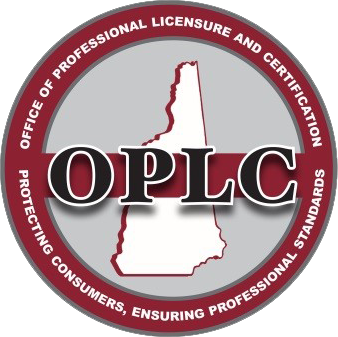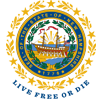Respiratory Care Practitioners Governing Board FAQs
Below are some of the most frequently asked questions regarding respiratory care practitioners received by the New Hampshire Office of Allied Health Professionals. For FAQs specific to a particular board, visit that board Web site.
FAQs for Respiratory Care Practitioners
- What is Respiratory Care?
- What is a Respiratory Care Practitioner?
- What are the licensure qualifications?
- What is the Respiratory Care Practitioner's Governing Board?
- How is the Board organized?
- How does the Board monitor competency of licensees?
- Can I get a conditional or temporary license in New Hampshire?
- What is Respiratory Care?
-
Respiratory Care or Therapy, also called Cardiopulmonary Care, is the diagnosis of diseases of the lungs and heart, and the development of treatment plans for individuals who are limited by these diseases to prevent disability, maintain health, and maximize independence. Respiratory Care is provided from premature infants, to athletes, to the elderly. Services under respiratory care can be provided at home, in hospital, in a nursing home, or any appropriate setting where needed. Respiratory services are provided to persons who suffer from diseases including chronic lung problems such as asthma, bronchitis and emphysema as well as heart attack and victims of trauma. Among other services provided are testing of lung function, sleep disorders and heart irregularities; treatments include oxygen therapy and treatment of lung disorders using specific drugs and delivery systems.
- What is a Respiratory Care Practitioner?
-
A Respiratory Care Practitioner is a highly qualified health care professional who is licensed to provide respiratory care in New Hampshire. All persons who provide respiratory care services in New Hampshire must be licensed by the Governing Board of Respiratory Care Practitioners and work in consultation with and under the order of a licensed physician, nurse practitioner, or physician assistant.
- What are the licensure qualifications?
-
Licensure qualifications are as follows:
- Successful completion of approved academic and fieldwork requirements.
- Successfully passing a national credentialing examination.
- What is the Respiratory Care Practitioner's Governing Board?
-
The Board is responsible for protecting the health, safety and welfare of individuals who receive respiratory care services in New Hampshire.
Members meet monthly to conduct Board business and:
- Develop policy and set standards of practice.
- Review applications and issues licenses to qualified applicants.
- Investigate complaints and take appropriate disciplinary action when violations are found to have occurred.
- Monitors and enforces continuing education requirement.
- How is the Board organized?
-
The five member Board is made up of:
- three licensed respiratory care practitioners,
- one public member and
- one medical doctor knowledgeable in the field
who are appointed by the Governor to serve specific terms.
- How does the Board monitor competency of licensees?
-
The Board requires that every licensee participate in educational activities relating to development for the purpose of updating and developing skills in order to provide appropriate respiratory care services and review complaints.
- Can I get a conditional or temporary license in New Hampshire?
-
The New Hampshire Respiratory Care Practitioner's Governing Board does not issue temporary licenses. When the Legislature established the RSA to grant licensing to Respiratory Care Practitioners, no provision was provided for this type of license. The reasoning behind this decision was based on the availability of qualified candidates to take the licensing exam, as administered by the National Board of Respiratory Care (NBRC), with little restriction as to time and dates. This change from the original practice of holding exams once or twice a year eliminated the need for temporary licensing.
In regard to conditional licenses, the Board issues a conditional license in cases of disciplinary actions, where the holder of the conditional license is given a set time period to meet the stipulations set by the Board to earn full reinstatement of license. The Respiratory Care Practitioners in this category are monitored by the Board and are required to present evidence of meeting the conditional requirements.
For new graduates, once your school has notified the NBRC that you have matriculated/graduated from your program, you are immediately eligible to take the exam. Once you have successfully passed the exam, the Board receives notification from the NBRC, your application will be processed at the next monthly Board meeting. To ensure your application is acted upon, it is your responsibility to ask for the application from the Office of Licensed Allied Health Professionals, complete it before you take the exam. If you have sent in the completed application and fees, your license should be approved once the proof of successful completion is received. If you are told of any deficiencies or questions about your application, the issuance of your license will be delayed until all deficiencies and questions have been cleared.




